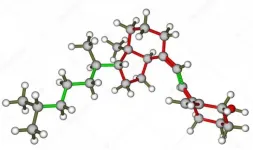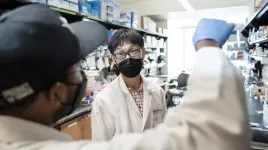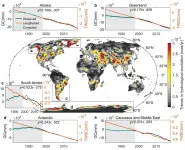(Press-News.org) By Karina Toledo | Agência FAPESP – Can a high dose of vitamin D administered on admission to hospital improve the condition of patients with moderate or severe COVID-19? The answer is no, according to a Brazilian study published in the Journal of the American Medical Association (JAMA).
The article reports a randomized, double-blind, placebo-controlled clinical trial, the kind of study considered the gold standard to evaluate drug efficacy. It was conducted with FAPESP’s support by researchers at the University of São Paulo’s Medical School (FM-USP), who recruited 240 patients treated at Hospital das Clínicas (HC), the hospital complex run by FM-USP, and the Ibirapuera field hospital in São Paulo City in June-August 2020.
“In vitro studies or trials with animals had previously shown that in certain situations vitamin D and its metabolites can have anti-inflammatory and anti-microbial effects, as well as modulating the immune response. We decided to investigate whether a high dose of the substance could have a protective effect in the context of an acute viral infection, reducing either the inflammation or the viral load,” Rosa Pereira, principal investigator for the project, told Agência FAPESP.
The volunteers were randomly divided into two groups, one of which was given vitamin D3 in a single dose of 200,000 units (IU) dissolved in a peanut oil solution. The other group was given only the peanut oil solution. All participants were treated according to the standard protocol for hospital treatment of the disease, which includes administration of antibiotics and anti-inflammatory drugs.
The main purpose was to see if acute supplementation would affect the length of hospital stay for these patients, but the researchers also wanted to find out whether it would mitigate the risks of admission to the intensive care unit (ICU), intubation and death.
No significant difference between the groups was observed for any of these clinical outcomes. According to Pereira, the study was designed above all to assess the impact on hospital stay and a larger number of volunteers would be needed to achieve a scientifically acceptable estimate of the effect on mortality.
“So far we can say there’s no indication to administer vitamin D to patients who come to the hospital with severe COVID-19,” she said.
For Bruno Gualano, a researcher at FM-USP and penultimate author of the article, the findings show that at least for now there is no “silver bullet” for the treatment of COVID-19. “But that doesn’t mean continuous use of vitamin D can’t have beneficial effects of some kind,” he said.
Ideal dose
Pereira is currently leading a study at FM-USP to find out whether subjects with sufficient circulating levels of vitamin D combat infection by SARS-CoV-2 better than those with insufficient levels of the nutrient.
The ideal level of vitamin D in the blood and the daily supplementation dose vary according to age and overall health, she explained. Older people and patients with chronic diseases including osteoporosis should have more than 30 nanograms per milliliter of blood (ng/mL). For healthy adults, 20 ng/mL is an acceptable threshold.
“The ideal approach is case-by-case analysis, if necessary dosing the substance periodically by means of blood work, with supplementation if a deficiency is detected,” Pereira said.
The article “Effect of a single high dose of vitamin D3 on hospital length of stay in patients with moderate to severe COVID-19” can be read at: jamanetwork.com/journals/jama/fullarticle/2776738.
High dose of vitamin D fails to improve condition of moderate to severe COVID-19 patients
A clinical trial was conducted with 240 patients who were given 200,000 IU of vitamin D3 on admission to hospital. The supplementation did not reduce length of stay or affect the proportion requiring intensive
2021-04-23
ELSE PRESS RELEASES FROM THIS DATE:
UNH research: Climate change affects deep-sea corals and sponges differently
2021-04-23
DURHAM, N.H.-- Corals and sponges are important foundations in ocean ecosystems providing structure and habitats that shelter a high number of species like fish, crabs and other creatures, particularly in the seamounts and canyons of the deep sea. Researchers at the University of New Hampshire have discovered that when it comes to climate change not all deep-sea corals and sponges are affected the same and some could be threatened if average ocean temperatures continue to increase in the deep sea of the Northwest Atlantic.
"These deep-sea corals and sponges are ecologically important because they are foundational ...
Citizen science data tracks battle of birds vs bacteria
2021-04-23
ITHACA, N.Y. - House finches are locked in a deadly cycle of immunity and new strains of bacterial infection in battling an eye disease that halved their population when it first emerged 25 years ago, according to new research from the Cornell Lab of Ornithology.
House finch eye disease causes red, swollen, watery or crusty eyes. Afflicted birds can recover, but may die because they cannot see well enough to find food or avoid predators. The latest analyses, based on the observations of Project FeederWatch participants from eight Northeast states, addresses the long-term ...
Study reports novel role of enzyme in plant immunity and defense gene expression
2021-04-23
A recently published article in the Molecular Plant-Microbe Interactions journal provides new evidence that pathogens are hijacking the plant immune system to cause disease while providing insights into a newly discovered mechanism.
A large variety of pathogens infect plants and cause different diseases, which can lead to reduced crop yields. During infection, pathogens secrete effector proteins into the plant cell. Some of these proteins target plant proteasomal degradation machinery, which is responsible for recycling proteins to regulate cell processes. Some E1, E2 and E3-ligase proteins have been identified as playing a role in plant susceptibility ...
NRG Oncology shows safety of stereotactic body radiotherapy to treat multiple metastases
2021-04-23
PHILADELPHIA, PA - The first National Institutes of Health (NIH) National Cancer Institute (NCI)-funded clinical study examining stereotactic body radiotherapy (SBRT) in the treatment of oligometastatic breast, prostate, and non-small cell lung (NSCLC) cancers displayed evidence that SBRT can be safely used to treat patients who have multiple metastases. These results were recently published in JAMA Oncology.
The results of the Phase I NRG-BR001 trial, conducted by the NCI National Clinical Trials Network group NRG Oncology, indicate that SBRT treatment in ...
Recreating the earliest stages of life
2021-04-23
SAN FRANCISCO, CA--April 22, 2021--In their effort to understand the very earliest stages of life and how they can go wrong, scientists are confronted with ethical issues surrounding the use of human embryos. The use of animal embryos is also subject to restrictions rooted in ethical considerations. To overcome these limitations, scientists have been trying to recreate early embryos using stem cells.
One of the challenges in creating these so-called synthetic embryos is to generate all the cell types normally found in a young embryo before it implants into the wall of the uterus. Some of these cells eventually give rise to the placenta. Others become the amniotic sac in which the fetus grows. Both the placenta and the amniotic sac are crucial for the survival of the fetus, and defects ...
New study shows people with a high Omega-3 index less likely to die prematurely
2021-04-23
A new research paper examining the relationship between the Omega-3 Index and risk for death from any and all causes has been published in END ...
NAOC scientists make further step towards understanding dark energy
2021-04-23
The extended Baryon Oscillation Spectroscopic Survey (eBOSS) collaboration has released its latest scientific results. These results include two studies on dark energy led by Prof. ZHAO Gongbo and Prof. WANG Yuting, respectively, from National Astronomical Observatories of the Chinese Academy of Sciences(NAOC).
The study led by Prof. Zhao was recently published in Monthly Notices of the Royal Astronomical Society.
Based on eBOSS observations, Prof. ZHAO's team measured the history of cosmic expansion and structure growth in a huge volume of the past universe, corresponding to a distance range between 0.7 and 1.8 billion light years away from us. This volume had never been ...
Urban design standards needed to protect Fraser River salmon, SFU report finds
2021-04-23
A joint research study by the Pacific Water Research Centre at Simon Fraser University and the Fraser Basin Council points to the use of certified, nature-based solutions for protecting salmon and aquatic habitats in the Lower Mainland.
Salmon face various threats in the Lower Fraser Watershed (where the Fraser River passes through the Metro Vancouver geographical area), including habitat loss due to urban development and toxic stormwater runoff, which is projected to worsen due to climate change-driven extreme rain events.
The END ...
'Like a metronome': Stalagmite growth found to be surprisingly constant
2021-04-23
Like tree rings, cave stalagmites are a portal to a prehistoric Earth, and now scientists from UNSW Sydney have found they are consistently reliable as time trackers the world over.
In a global investigation into the growth properties of stalagmites distributed across the world, the scientists found that while growth fluctuations due to climate events are evident in the shorter period, stalagmite growth over the longer periods - tens of thousands of years - are surprisingly linear.
"Our new global analysis shows that we can consider stalagmite growth as being like a metronome and very ...
Climate has shifted the axis of the Earth
2021-04-23
WASHINGTON-- Glacial melting due to global warming is likely the cause of a shift in the movement of the poles that occurred in the 1990s.
The locations of the North and South poles aren't static, unchanging spots on our planet. The axis Earth spins around--or more specifically the surface that invisible line emerges from--is always moving due to processes scientists don't completely understand. The way water is distributed on Earth's surface is one factor that drives the drift.
Melting glaciers redistributed enough water to cause the direction of polar wander to turn and accelerate eastward during the mid-1990s, according to a new study in Geophysical Research Letters, AGU's journal for high-impact, ...
LAST 30 PRESS RELEASES:
AI biases can influence people’s perception of history
Prenatal opioid exposure and well-being through adolescence
Big and small dogs both impact indoor air quality, just differently
Wearing a weighted vest to strengthen bones? Make sure you’re moving
Microbe survives the pressures of impact-induced ejection from Mars
Asteroid samples offer new insights into conditions when the solar system formed
Fecal transplants from older mice significantly improve ovarian function and fertility in younger mice
Delight for diastereomer production: A novel strategy for organic chemistry
Permafrost is key to carbon storage. That makes northern wildfires even more dangerous
Hairdressers could be a secret weapon in tackling climate change, new research finds
Genetic risk for mental illness is far less disorder-specific than clinicians have assumed, massive Swedish study reveals
A therapeutic target that would curb the spread of coronaviruses has been identified
Modern twist on wildfire management methods found also to have a bonus feature that protects water supplies
AI enables defect-aware prediction of metal 3D-printed part quality
Miniscule fossil discovery reveals fresh clues into the evolution of the earliest-known relative of all primates
World Water Day 2026: Applied Microbiology International to hold Gender Equality and Water webinar
The unprecedented transformation in energy: The Third Energy Revolution toward carbon neutrality
Building on the far side: AI analysis suggests sturdier foundation for future lunar bases
Far-field superresolution imaging via k-space superoscillation
10 Years, 70% shift: Wastewater upgrades quietly transform river microbiomes
Why does chronic back pain make everyday sounds feel harsher? Brain imaging study points to a treatable cause
Video messaging effectiveness depends on quality of streaming experience, research shows
Introducing the “bloom” cycle, or why plants are not stupid
The Lancet Oncology: Breast cancer remains the most common cancer among women worldwide, with annual cases expected to reach over 3.5 million by 2050
Improve education and transitional support for autistic people to prevent death by suicide, say experts
GLP-1 drugs like Ozempic could cut risk of major heart complications after heart attack, study finds
Study finds Earth may have twice as many vertebrate species as previously thought
NYU Langone orthopedic surgeons present latest clinical findings and research at AAOS 2026
New journal highlights how artificial intelligence can help solve global environmental crises
Study identifies three diverging global AI pathways shaping the future of technology and governance
[Press-News.org] High dose of vitamin D fails to improve condition of moderate to severe COVID-19 patientsA clinical trial was conducted with 240 patients who were given 200,000 IU of vitamin D3 on admission to hospital. The supplementation did not reduce length of stay or affect the proportion requiring intensive



